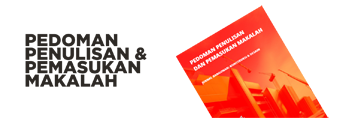Plagiarism Policy
Jurnal Bangunan, Konstruksi & Desain (JBKD) is committed to maintaining the highest standards of integrity in academic publishing. To ensure the originality of all submitted manuscripts, the journal employs Turnitin as its plagiarism detection tool. All published content is licensed under the Creative Commons Attribution-NonCommercial (CC BY-NC) license, which governs how content can be shared and reused.
Plagiarism Detection
All submitted manuscripts are screened for plagiarism using Turnitin before the peer review process. This ensures that all content is original, properly attributed, and adheres to the journal's ethical standards.
Similarity Threshold
JBKD has set a maximum similarity index of 25%. Manuscripts with a similarity score exceeding this threshold will be rejected without further review. The similarity percentage includes both direct quotations and any paraphrased sections that are not properly cited.
Consequences of High Similarity
If a manuscript is found to have a similarity index greater than 25%, the submission will be immediately rejected. The author(s) will be notified, and they are encouraged to revise the work to meet the journal’s originality standards before resubmitting.
Author Responsibilities
Authors are expected to ensure that their manuscripts are original works and properly cite all sources. Self-plagiarism, where an author reuses their own previously published work without appropriate citation, is also considered a violation of the journal’s plagiarism policy. Authors must ensure that the use of any third-party content adheres to the terms of the CC BY-NC license, which prohibits commercial use of the content without explicit permission.
Handling Allegations of Plagiarism
In cases where plagiarism is suspected after a manuscript has been accepted or published, JBKD will conduct a thorough investigation. If plagiarism is confirmed, the manuscript may be retracted, and the authors’ institutions may be informed.
Ethical Standards
JBKD follows the guidelines of the Committee on Publication Ethics (COPE) in dealing with plagiarism and other ethical issues. The journal takes all allegations of plagiarism seriously and will take appropriate action when necessary.
By using Turnitin and enforcing a strict similarity threshold, JBKD ensures the originality and integrity of its published content, in compliance with the CC BY-NC license.



